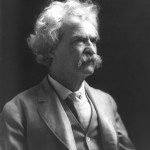Editor's Note: This article is part of the symposium, "What Is Progressive Christianity?" presented by the newly launched Patheos Progressive Christian Portal and in partnership with the Wild Goose Festival (June 23-26). Like us on Facebook to receive today's best commentary on Progressive Christianity.
Cynthia Astle provides a thoughtful, well-informed response to my recent article, "Believe Out Begins with Believe In" and, for that I am grateful. But she has invited a response and, in the interest of a robust conversation, that seems appropriate.
My first observation is perhaps the most important: I never, in fact, argued that Progressive Christianity lacks a presumptive theological core. Nor did I argue that Progressive Christianity is without theologians who are capable of answering the questions I outlined in my column.
What I did say is that Progressive Christian voices are so diverse that that it is difficult for the movement to avoid resorting to political categories and concerns in addressing differences of opinion. That, it seems to me, is one of the conclusions that might be drawn from the flap over the decision at Sojourners, and it helps to explain why so many of the protests written about the decision were cast in political, rather than theological, categories. And therein lies the point of the column.
The challenge facing Progressives is not simply a matter of diversity, however. It is also the nature of the progressive project itself.
Unlike Ms. Astle, I believe that the "eight points" of the progressive movement are not as much theological as they are phenomenological or methodological in nature. And the movement's founder takes an approach to conversations about God that is much the same. See, for example, Jim Adam's essay on God Talk.
A similar approach is manifest in Ms. Astle's discussion of divine mystery. Classically, for Christianity, sacred or divine mystery has been a term applied to the limits of what can be known about the ways of God as understood in the Christian tradition. But, true to the leading lights of Progressive Christianity, Ms. Astle describes the identity of God itself as the mystery.
I am not positing any dishonesty here on the part of the movement, Ms. Astle, or Mr. Adams. Nor am I arguing that the Progressive project is a failure, judged by its own lights. The language of all three, in fact, is thoroughly consistent. The language of "points" eschews notions of "propositions" or "beliefs." The language "God Talk" sidesteps the notion of "theology." Both the "Points" and Mr. Adam's essay talk about a spiritual experience that is had in human community rather than in experiences of the transcendent. The first two organizing principles affirm that you "can" learn something from Jesus (point one), but he is certainly not the only place you can learn something spiritually valuable (point two). And, as I understand her, for Ms. Astle, the identity of God is a mystery about which Progressive Christians cannot be unequivocal.
This is, of course, by design and, as Ms. Astle notes, Mr. Adams' effort is meant to provide a vehicle for social cohesion for an expression—or, should I say, "expressions"—of Christianity that might otherwise dry up and blow away. From Mr. Adams' point of view, the phenomenon of Progressive Christianity already existed in multiple forms and the project he designed was meant to describe and embrace it. But therein lies the perennial sociological, if not spiritual and ecclesiological, challenge. How does one lend cohesion to a movement without boundaries of some kind?
My suspicion is that the DNA and design of the movement will resist drawing those boundaries with any more precision than absolutely necessary. And, for that reason, identifying a core may be more difficult than Ms. Astle believes. If so, then Progressive Christians who are going to speak about what they "believe in" before they declare what they "believe out" may need to be content with speaking from a variety of theological positions. But that, it seems to me, is preferable to Christians who talk in terms of politics and never explain why they believe what they do in categories well-integrated with their faith.
What that would look like and how well it will wear, history will judge—as it always does.
6/14/2011 4:00:00 AM





